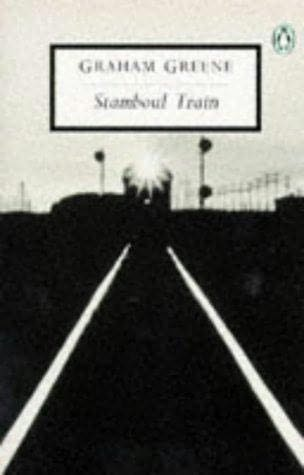Stamboul Train
© http://http-server.carleton.ca/~agresik/stamboul.jpg
Stamboul Train (1932) is
a novel by author Graham Greene. A thriller set on an Orient Express train, it
was renamed Orient Express when it was published in the
Plot introduction
The novel is one of a number of works which
the author classed as an "entertainment" so as to distinguish them
from his more literary works. In 1974, Greene wrote: "In Stamboul Train for the first and last time in
my life I deliberately set out to write a book to please, one which with luck
might be made into a film. The devil looks after his own and
I succeeded in both aims" (from the Introduction to the 1974
edition of Stamboul Train).
Plot summary
The novel focuses on the lives of individuals
aboard the train as it makes a trip from
Myatt is a
shrewd and practical businessman. Partly out of generosity, he gives the sick
Coral Musker a ticket, for which Musker
feels grateful and dutifully falls in love with him. She then spends a night
with him in his compartment.
Dr. Czinner, an
exiled socialist leader, wants to travel back to
When the train arrives at
At
The three prisoners are kept in a waiting
room for the night. They soon realize that Myatt has
just come back for Musker in a car. The skilful Grünlich breaks open the door and all three try to escape
and run to the car. Unfortunately, only Grünlich is
able to do so -- Czinner is shot and Musker hides him in a barn. Czinner
dies soon after. When
The Orient Express finally arrives at
Characters
The central characters are a Socialist or
Communist doctor, journalist and her companion, thief, currant trader, and
dancer.
Dr. Paul Czinner
the doctor -
described sometimes as a socialist and at another a communist - is returning to
face trial for political crimes, as an agitator for class war.
Josef Grünlich
the thief,
fleeing a murder after a bungled robbery, uses his charisma and intelligence in
his attempt to flee his country.
Carleton Myatt
the currant
trader, a Jew, is travelling on business and faces
anti-semitism from many of his fellow travellers as he travels through pre-World War II Europe.
Mabel Warren
the
journalist, is following the doctor, to report on his travels.
Coral Musker
the dancer,
is travelling to a new job she has been offered.
Major themes
Greene's "entertainments" usually
include discussion of serious issues, and Stamboul
Train raises topics such as Racism and Socialism/Communism. A major theme
in the novel is the issue of fidelity, the duty to others vis-á-vis
duty to self, and whether faithfulness to others pays. The theme is most
clearly shown in the struggles in the minds of Czinner
and Musker.
The novel communicates a sense of unease
which in part reflected the author's financial circumstances at the time he
wrote it, and partly the gloom of the post-depression era in
On the eve of publication there was an
unanticipated problem: a threatened libel action from J. B. Priestley. One of
the novel's minor characters, a writer called Quin
Savory, was alleged to be a defamatory representation of Priestley. In the
book's final version, the Cockney novelist does not have much in common
with Priestley, but the text had to be rewritten at the last moment. Looking
back on the incident in the context of other problems with the libel laws, Greene
explained: "In this case Mr Priestley, I am
sure, really believed that this all-but-unknown writer was attacking him; he
acted in good faith" (from the Introduction to the 1974 edition of Stamboul Train).
Film adaptation
A film named "Orient Express" was
made in 1934 starring Heather Angel as Carol Musker.
© http://en.wikipedia.org/wiki/Stamboul_Train
